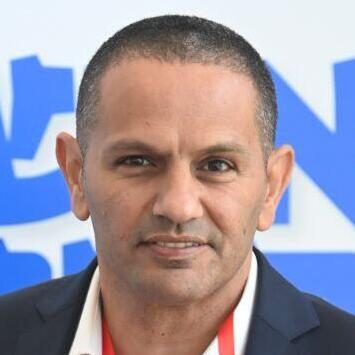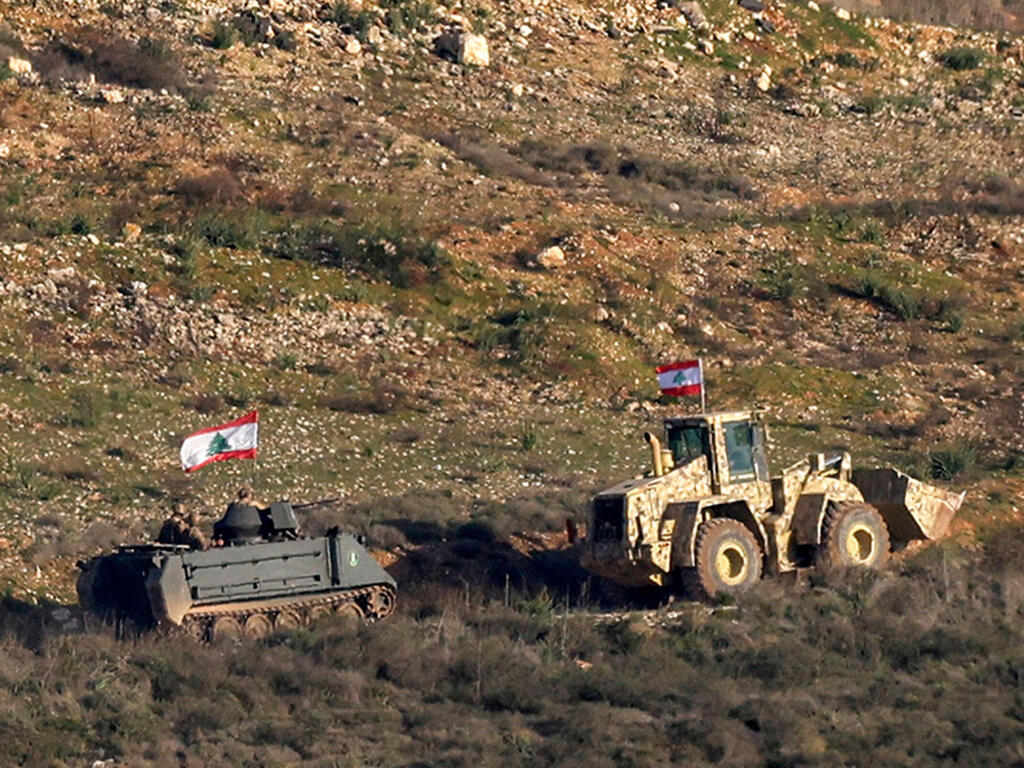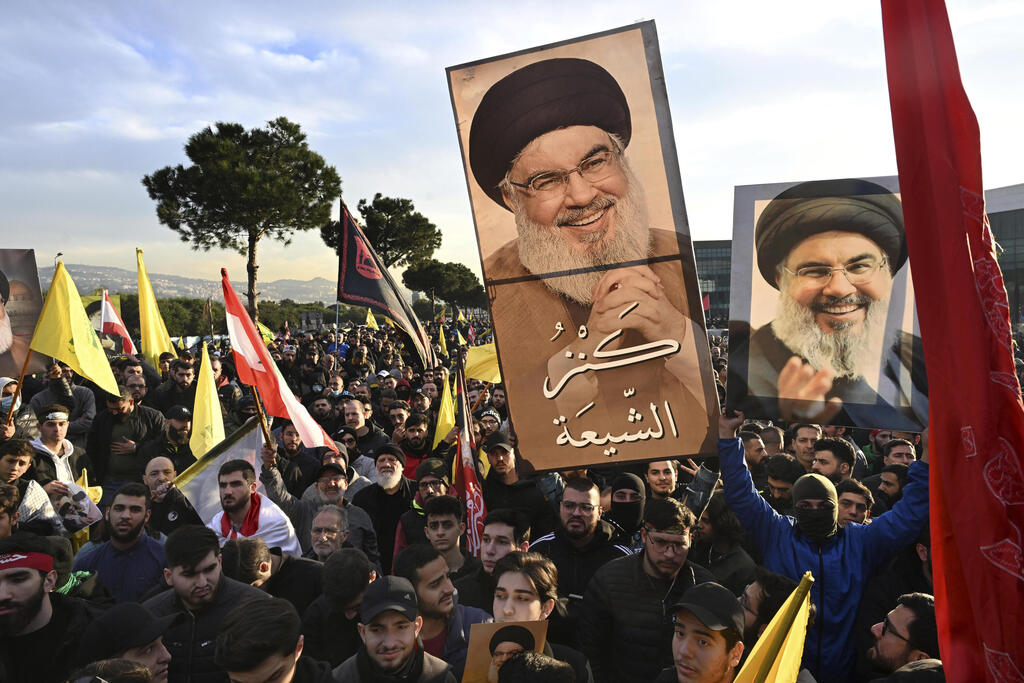Getting your Trinity Audio player ready...
In a moment of symbolic significance, municipal elections will be held on Tuesday in the communities along Israel’s northern border, which were postponed due to the fighting in the area—just as IDF forces withdraw from Lebanon under the terms of the ceasefire agreement.
On one hand, it's a demonstration of Israeli sovereignty through the fundamental democratic act of voting. On the other, there's a palpable sense of unease among residents who, while able to vote and be elected, feel that their right to security remains compromised.
It’s doubtful that even the IDF’s new deployment—anchored by five positions along a narrow security strip stretching from the Mediterranean Sea to the Metula region—will be enough to convince residents to return en masse when the military officially recommends it on March 1.
Meanwhile, across the border, we're likely to witness a frustrating sight: convoys of vehicles waving Hezbollah flags en route to villages near the fence. The IDF’s operational achievements against one of Israel’s most dangerous enemies have been remarkable, yet the diplomatic outcome feels incomplete, fueling concerns among local leaders that genuine, long-term security is still far from guaranteed. Sadly, their concerns seem well-founded.
Get the Ynetnews app on your smartphone: Google Play: https://bit.ly/4eJ37pE | Apple App Store: https://bit.ly/3ZL7iNv
The most glaring weakness in the agreement is the absence of a buffer zone—an area off-limits to civilians and, especially, to Hezbollah operatives. The IDF's recent blow to Hezbollah's elite Radwan Force, which was trained to seize Israeli border communities, significantly reduces the likelihood of a repeat of the October 7-style scenario.
But it won't prevent provocations designed to test Israel's response, even if they risk triggering renewed violence. It’s therefore baffling that the agreement does not include a clear Israeli demand stipulating that no armed forces other than the Lebanese Army be permitted in southern Lebanon—and that anyone seen carrying a weapon be considered a legitimate target, regardless of whether they’re actively engaged in terrorism.
When asked why Israel hadn't insisted on such terms, a senior Israeli official gave a surprising response: "While the agreement was being finalized, Israel didn’t fully grasp the magnitude of its victory over Hezbollah—a victory that ultimately contributed to weakening the Assad regime as well." In other words, Israel believed it was better to stop the war at that stage, convinced that Hezbollah’s capabilities were still largely intact.
This explanation raises uncomfortable questions: How could a country capable of pinpointing and eliminating Hezbollah’s senior operatives with surgical precision fail to accurately assess the enemy’s status? How did a war that began with an overestimation of Hezbollah’s strength end with the same flawed assumption—despite game-changing operations like the "Pagers" mission and the reported elimination of Hezbollah chief Hassan Nasrallah? While it’s true that U.S. pressure, depleted ammunition, and the strain on reserve units all factored into Israel’s calculus, the official's statement raises the specter of yet another intelligence failure.
Is Israel Preparing for Another Round?
Regardless, some Israeli officials argue that the evolving situation—and the upcoming shift in the U.S. administration—should be leveraged to push for Hezbollah’s disarmament, with its arsenal transferred to the Lebanese Army. If that doesn’t happen—and it likely won’t—these officials believe Israel should act again. The military’s top leadership isn’t eager to escalate in Lebanon, especially with the looming possibility of renewed fighting in Gaza and the strain on reserve forces. But the decision may ultimately land on the incoming IDF chief of staff's desk sooner than expected.
Meanwhile, the IDF is busy reinforcing its defenses in the north. Troop presence there has tripled compared to pre-October 7 levels, and additional outposts are being built near border-adjacent communities. IDF Northern Command has also noted improved Lebanese Army efforts to curb Hezbollah’s activity—certainly more proactive than before the war. But these measures, however welcome, remain limited and insufficient. It’s clear that Israel and its military still bear the burden of proving that the security reality has fundamentally changed.
3 View gallery


Aftermath of Israeli drone attack against senior Hamas operative in Lebanon
(Photo: AFP)
This explains the IDF’s recent uptick in offensive operations. Just two days ago, Israeli warplanes hit Hezbollah positions while the group’s leader, Naim Qassem, delivered a speech—retaliating for repeated ceasefire violations.
Over the weekend, an airstrike eliminated a senior commander from Hezbollah's UAV unit after the group launched several reconnaissance drones into Israeli airspace. And just yesterday, a strike in Lebanon killed senior Hamas operative Muhammad Shahin, who, according to Israeli intelligence, served as the group's "head of operations" in Lebanon and a key liaison to Iran.
 Yossi Yehoshua
Yossi YehoshuaFor residents of the north, these actions offer some reassurance but fall short of shifting their reality. The real test will come if Hezbollah continues its provocations—and, more importantly, when the Israeli government instructs the IDF to escalate its response, even at the risk of renewed fighting. Only then will the residents feel that something has truly changed. Until then, their collective memory remains seared by the events of the year before the war, when Hezbollah advanced toward the fence, erected tents on Mount Dov, and even dispatched a terrorist to carry out an attack at the Megiddo Junction—moves that Israel chose to ignore at the time. That history must not be allowed to repeat itself.




